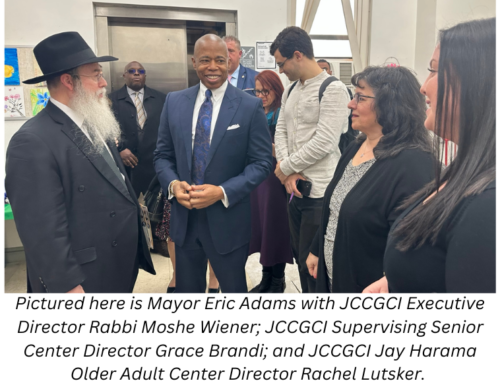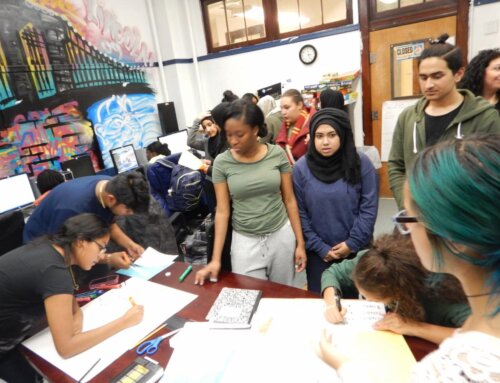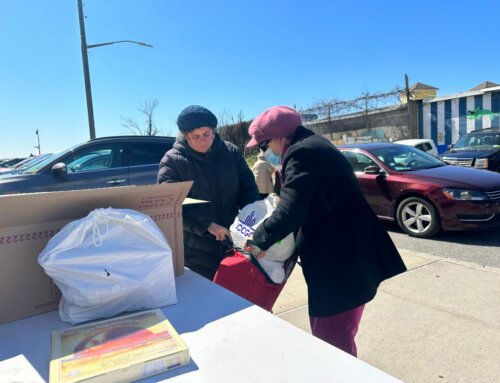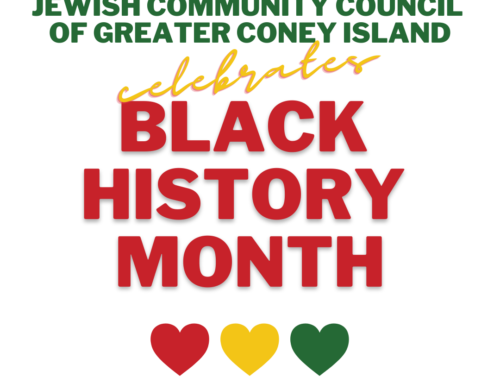Operation H.O.O.D. is also one of the social services operated in the neighborhood through the Jewish Community Council of Greater Coney Island, whose own headquarters are just a few blocks away from the Operation H.O.O.D. site. The Jewish non-profit operates Operation H.O.O.D.’s $1.8 million budget and secures more funding from the city and state, and assists in acquiring additional social services within the program, like mental health counseling and conflict resolution programs in nearby public schools.
Rabbi Moshe Wiener has been the executive director of the Jewish Community Council of Greater Coney Island since 1981. “In keeping with the biblically mandated role of the Jewish people as ‘a light unto the nations,’ the duty of a Jew in carrying out his mission in life includes not only service to the Jewish people, but also service to the society and world at large,” Wiener told the New York Jewish Week about his nonprofit’s role with Operation H.O.O.D.
The previous night’s shooting is the reason the headquarters is understaffed that afternoon: The rest of Operation H.O.O.D.’s team was out in the field doing “shooting response,” another facet of their Anti-Violence work.
Ayers runs most operations and activities at the recreation center, including boxing and weightlifting programs. “We really appreciate how much we’ve been able to give them with this space,” he says, reflecting on the new digs, which opened June 29.
In addition to all the recreational activities, the space has a large office area and meeting room, where teens can meet with a social intake worker, complete homework or fill out job applications. A sign on the back wall reads, “If you can run a gang, you can run a company,” alongside other framed motivational quotes.
“It’s a drop in the bucket for what’s necessary,” Scott said. In another shooting the week before,
five people were injured on the boardwalk. Coney Island has already had nearly 200 felonious assault complaints — attacks involving violent weapons — this year to date. That number is down 9% from the same period last year, according to
data from the NYPD, and 56% since 1993.
“We believe that a caring Jewish social service system should assure that the local health, security and human service needs of both the Jewish and broader community are addressed effectively and efficiently and bring together the diverse populations and institutions of the community,” Wiener added.
The JCCGCI receives federal, state and local funding for its programs, as well as funding from both non-Jewish and Jewish philanthropies, including UJA-Federation. (UJA-Federation is a funder of 70 Faces Media, the New York Jewish Week’s parent company.) It is often sought out for its expertise on social services and community initiatives, Wiener said.
This is why, in 2015, when then City Council member Mark Treyger was able to secure $250,000 for a new community Anti-Violence initiative that would help address crime in Coney Island and fulfill other unmet needs in the community, he trusted Wiener to manage it.
Wiener, in turn, enlisted Scott, whom he knew as “one of the pioneers in bringing Cure Violence to New York,” through several community initiatives, including an organization called Save Our Streets.
Operation H.O.O.D. was officially founded in early 2016. By October, Coney Island was celebrating more than six months without a shooting, a feat that has now been accomplished several times over. Operation H.O.O.D. also operates as a Crisis Management System site for Coney Island as part of New York City’s Office to Prevent of Gun Violence. According to the city’s website, there was a
40% reduction in shootings from 2010-2019 due, in part, to the existence and funding of CMS sites like Operation H.O.O.D.
Now, with 27 team members and a budget that continues to grow, Scott still feels there aren’t enough people to do all the work that needs to be done in Coney Island and neighboring communities — even with members on call 24 hours a day.









